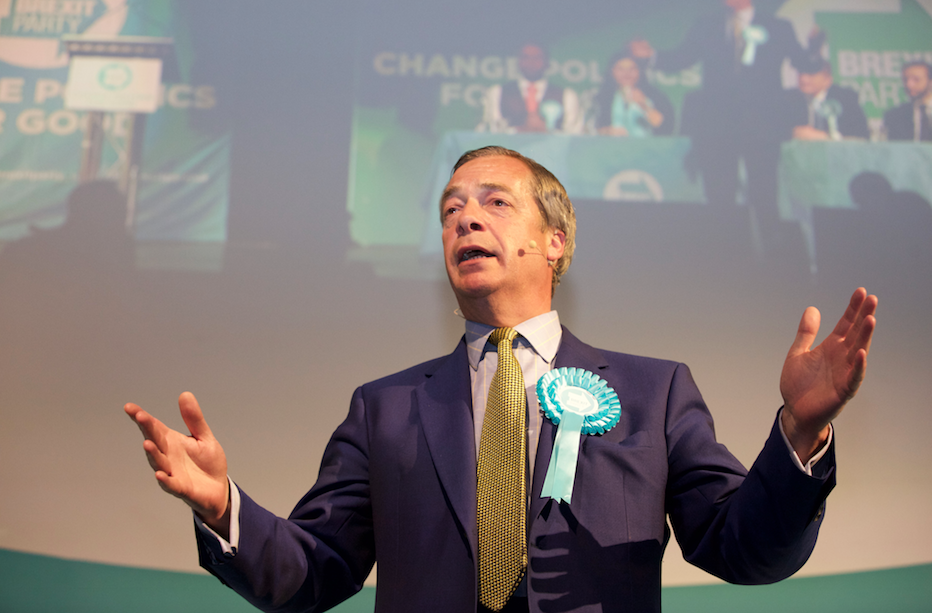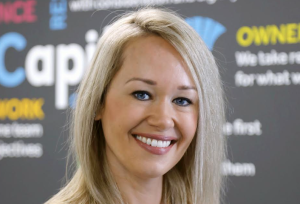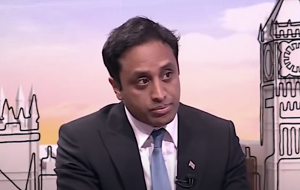Farage finding his voice among the mob – Daily Business Magazine


No politician divides opinion more than the leader of Reform UK, but his support for business and industry at least deserves to be heard, writes TERRY MURDEN
Nigel Farage, symbol of the hate mob, and poster boy for those frustrated by the failings of other politicians, arrived in Aberdeen this week to face a media pack who sat through his presentation on the threat to the oil & gas industry and his misgivings on net zero but were more interested in another, more pressing, matter: whether or not he could win the Hamilton Larkhall and Stonehouse by-election.
It was clearly the top item on the list of questions for the political correspondents who made up the bulk of his audience. Even so, it was an opportunity for those who might just want to hear more about his views on another major issue facing Scotland.
His approach was typically contrarian. One that is often derided as “populism”, defined as “a political approach that strives to appeal to ordinary people who feel that their concerns are disregarded by established elite groups”. Is that a bad thing? It certainly explains why Mr Farage is gaining ground among voters and why he is getting under the skin of his opponents. He argues that they have disregarded the concerns of ordinary people and that’s why they are getting behind him.
He’s also speaking the language of some in the business world, notably those in the energy sector who, if not publicly, are prepared to give a voice to someone standing up for their interests.
His warning about jobs being lost in the oil and gas sector were, at best, downplayed (except by Daily Business). The next day they were echoed in a report from Robert Gordon University which said 400 could be lost every fortnight – equivalent to those made redundant at Grangemouth oil refinery. That’s 400 every two weeks. Apart from the faint sound of the Tories, the other parties are silent on the issue.
That RGU story secured headlines, including front pages. Yet Mr Farage had to settle for being quizzed on the one issue the media was determined to challenge him on: his spat with Scottish Labour leader Anas Sarwar over a controversial advertising campaign.
While the Reform UK leader delivered an argument for continuing to invest in the North Sea and introduced his side-kick Richard Tice to explain why electricity prices were too high, the media waited for their opportunity to pounce on the race row and whether he could make a historic breakthrough in Hamilton.
The dispute over race is an important one and Mr Farage’s position on it is, frankly, indefensible. But the energy transition is also important and here was an opportunity to hear another view that cuts through the currently muddled policy that is witnessing the oil and gas industry decline without a sufficiently rapid growth in renewables to replace it.
As Mr Farage was speaking, this website published comments from an engineer who had written to him explaining how he was one of the “exodus” of workers who were leaving the region to seek work elsewhere. There have been recent warnings that the skills required for the transition to clean energies were being lost and here was an example.
It was another story that went largely unreported while Mr Farage and the media engaged in a farcical cat and mouse chase around the bars and car parks in Lanarkshire. He dodged their attention by setting a false lead in order to avoid a gaggle of protestors who continue to hound him in Scotland. “We don’t see that sort of thing in England anymore,” he told his audience in Aberdeen, with a weary sigh that indicated his own frustration with those not prepared to listen.
To say the Reform UK leader divides opinion is putting it mildly. He has a track record that raises eyebrows over what some consider acceptable or even sensible. As such, he is received with scepticism and hostility wherever he goes, though if he continues to garner support across the country the naysayers will have to hear him out.
I wrote a comment on LinkedIn this week on how the BBC failed to mention his trip to Aberdeen. Some respondents said the corporation took the right decision. This is an extraordinary reaction. Not only could his party gain a foothold in the Scottish parliament, he could become the next Prime Minister. Ignoring him will not be possible.
Mr Farage has a lot of baggage, and he unwisely and wrongly accused The Herald of being involved with the protestors. This was a self-inflicted error of judgement and one that simply stirs up more hostility. On the bigger issues he is yet to put flesh on the bones of his policy statements which his critics say would lead to a Liz Truss style meltdown.
Yet he has found support across England, and increasingly in Scotland by wrong-footing all parties, and he has done so by taking up views that they have failed to tackle: illegal immigration – in particular the boats landing on the English coast – the decline of industry, the tangle of red tape and what he deems as wasteful spending in local authorities. While Labour dithers over re-introducing the winter fuel allowance he has committed to do so, and explained why. Populist? Yes. Costed? No. Do voters care about the affects on the country’s fiscal framework as long as he fixes the problem? Not really.
His critics accuse him of not being interested in Scotland, yet he spoke up for one of its biggest industries. He declared devolution needed to be improved as it is “not working”, but he said it was “here to stay”. That sounds like a commitment to Scotland. It is also why, when he returns, he may do so with an even bigger number of supporters.
Terry Murden was Editor and Business Editor at The Sunday Times Scotland, Business Editor at The Scotsman, and Business and City Editor at Scotland on Sunday. He is now Editor of Daily Business.
>Latest Daily Business news
Related
#Farage #finding #voice #among #mob #Daily #Business #Magazine






